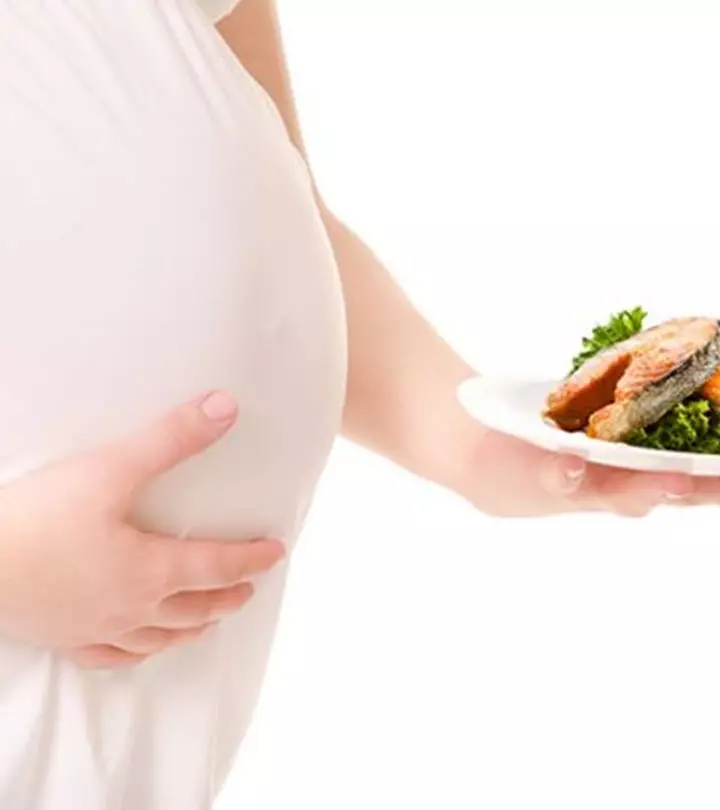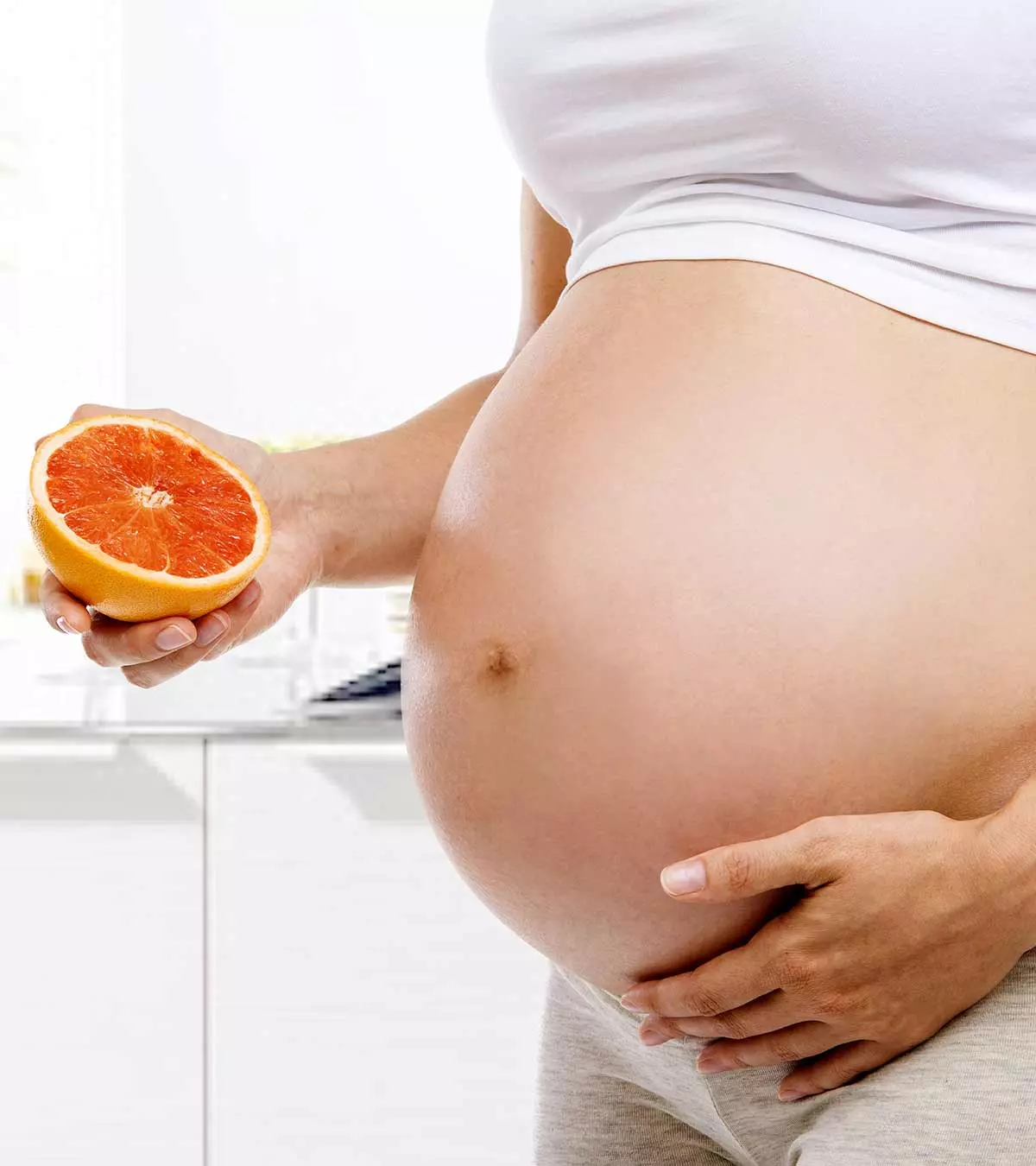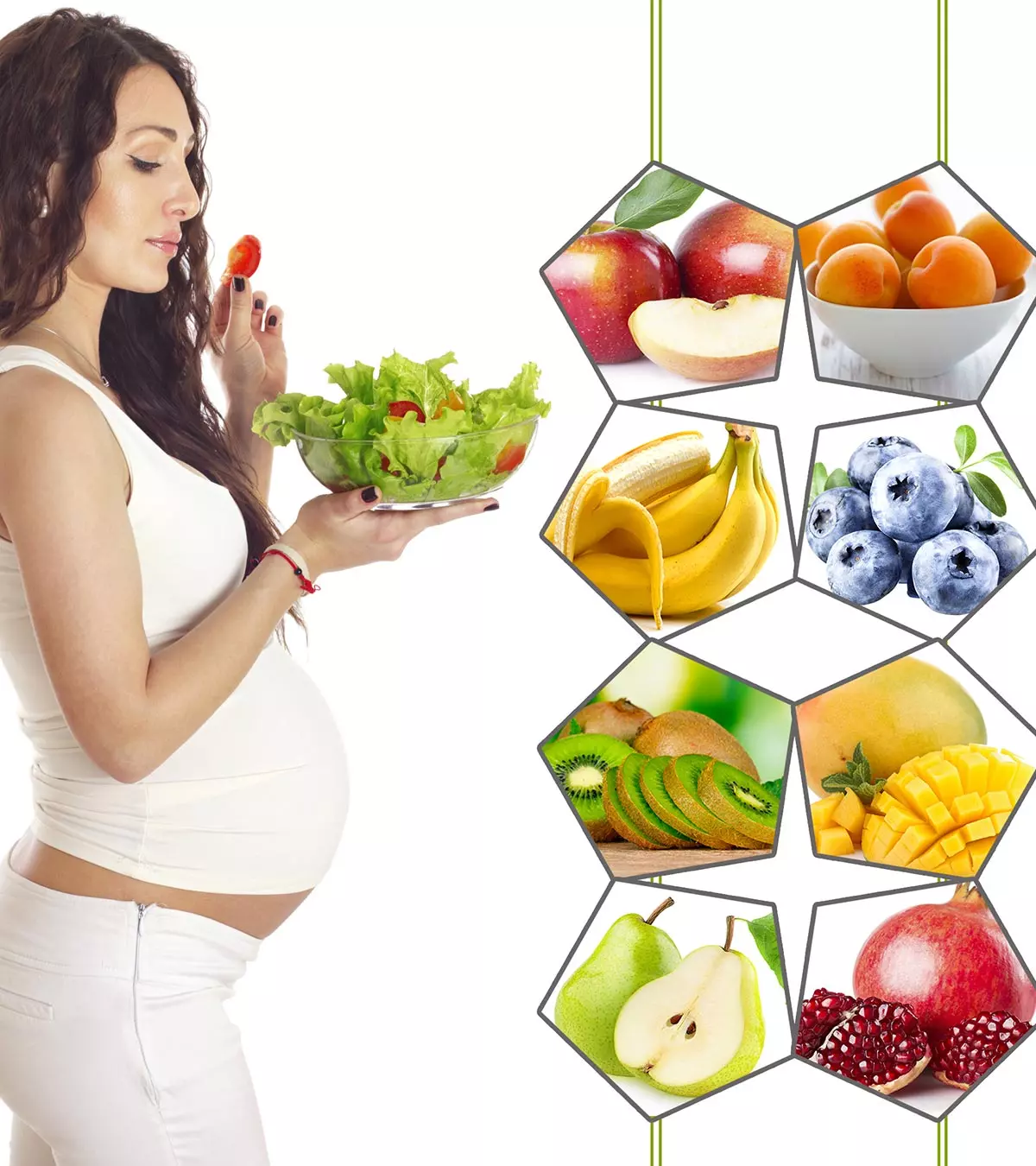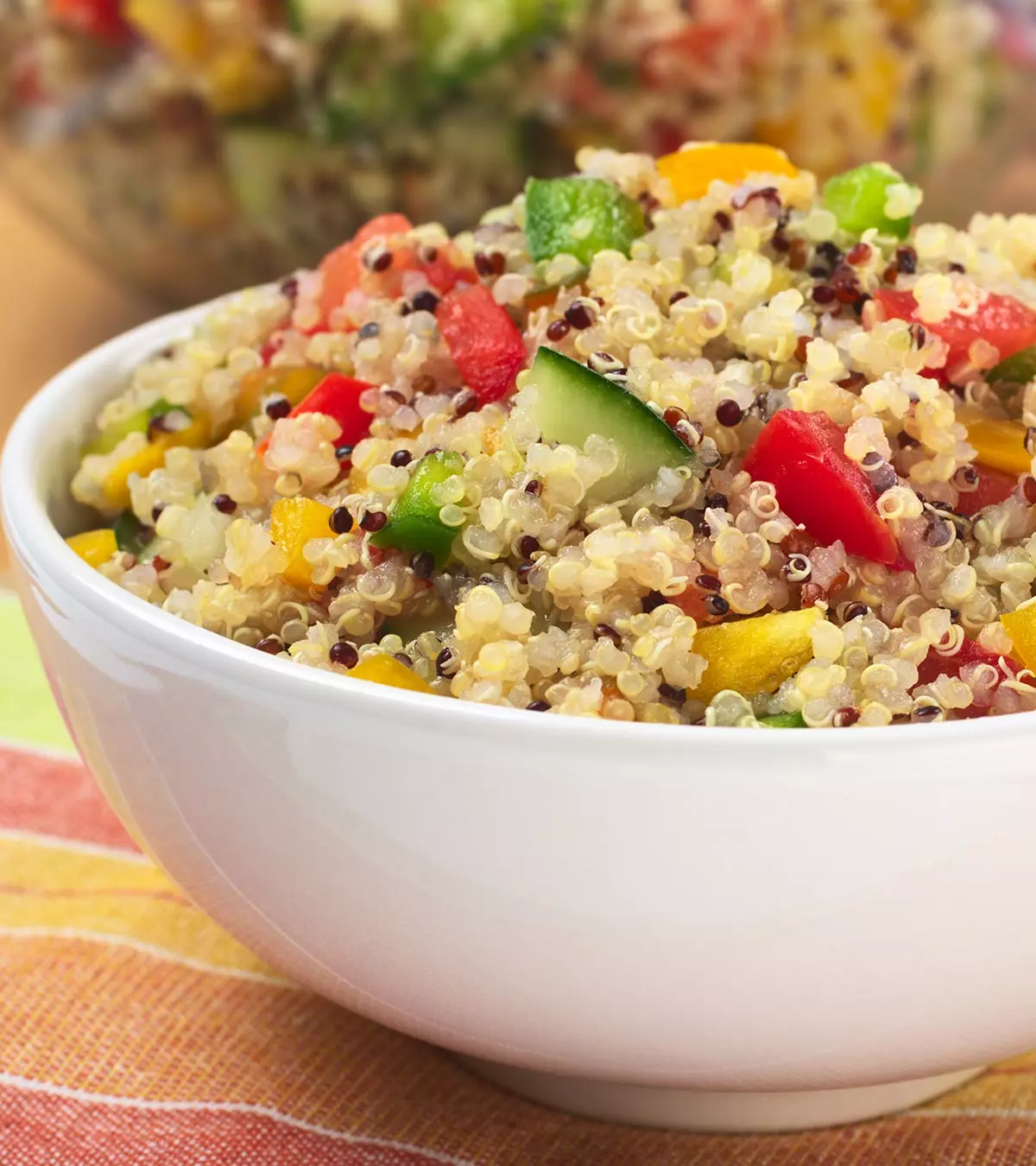
Image: ShutterStock
Many individuals deal with food allergies caused by milk, eggs, nuts, etc. Their bodies cannot tolerate these foods well and produce several symptoms. Similarly, some women experience fish allergy during pregnancy, causing them to develop symptoms such as nausea, vomiting, and eczemaiA skin condition that causes itchy, red, and scaly patches on the skin due to various factors such as allergies, genetics, or stress. . However, in some rare cases, fish allergy may give rise to a dangerous issue called anaphylaxisiAn extreme reaction to an allergen causing breathing difficulties and loss of consciousness. (1).
Anaphylaxis arises due to high levels of histamine caused by the allergen (2). If it is not treated at the nascent stage, it can be life-threatening. To avoid such situations, we have given below some important information regarding fish allergy during pregnancy.
Key Pointers
- Women who have a family history of fish allergies, other food allergies, and asthma have a higher risk of developing fish allergies during pregnancy.
- Symptoms of fish allergies may include hives, swelling, nausea, vomiting, diarrhea, difficulty breathing, and in severe cases, anaphylaxis.
- Topical creams are used for treating mild allergies, while epinephrine is used for severe allergies.
- To reduce the risk of fish allergy, avoid handling fish and do not visit seafood restaurants.
What Is Food Allergy?

Image: Shutterstock
Food allergy is a common phenomenon found in adults and children. The CDC National Center for Health Statistics (2019) suggests approximately 6.2% of adults aged 18 and above in the US have a food allergy. The most familiar food, which causes allergies, are milk, eggs, tree nuts, wheat, soy, peanut, and fish (2).
- Every individual has certain levels of tolerance towards their allergic substance.
- Some people can eat a small portion of their allergic substance and are okay while some might be affected by touching them!
- However, you should not be concerned much if you have a normal level of allergy; it is a matter of worry only when you are highly allergic to an item.
How is Fish Allergy Caused?
If you are suffering from fish allergy, you are hypersensitive towards the chemical and biological components of fish; therefore, eating fish may cause negative reactions in your body.
Allergy towards any particular food (in this case, fish) is caused in the following ways (3):
- When you eat fish, your immune system might wrongly think of it as a harmful substance. It then orders your body to reject it.
- Thus your body will try to defend itself and start producing antibodies to fight against the harmful substance.
- These antibodies are called immunoglobulin E or IgE. They are the weapons used by your body to defend itself against any potential attack.
So by the second and third helping of fish, your symptoms become severe. It happens to the extent of you becoming comatoseiA state of being in a deep and prolonged state of unconsciousness (coma), usually due to a medical ailment. , because by then many antibodies would have been generated and wrecking havoc inside your body.
Who Are Vulnerable To Develop Fish Allergy?

Image: Shutterstock
You are more likely to develop fish allergy due to any one of the following reasons
- If you have a family history of fish allergy.
- If you had any food allergies in the past, there are more chances you may suffer again.
- If you are allergic to any other food, you may also develop an allergy to fish.
- Lastly, if you have asthma, there are more chances to get an allergy to fish.
 Quick fact
Quick factSymptoms Of Fish Allergy:

Image: Shutterstock
If you are suffering from fish allergy you may suffer any one or more of the following symptoms (1):
- Symptoms on skin like eczema or hivesiA skin condition characterized by itchy rashes and bumps often triggered by allergic foods or medications.
- Swelling
- Digestive problems such as nausea, vomiting, abdominal pain, and diarrhea
- In rare cases, respiratory problems like wheezing or difficulty in breathing(5).
- Allergy symptoms such as above can be elevated to a condition called anaphylaxis when exposed to fish proteins. It becomes a fatal case and you might suffer from
- Dizziness
- Breathlessness
- Loss of consciousness
In case of anaphylaxis, the patient should be rushed to the nearest hospital and treated as soon as possible.
 Things to know
Things to knowHow To Treat Fish Allergy?

Image: Shutterstock
When you are pregnant you cannot consume any over the counter medicine available to overcome the allergy. It is very important for you to discuss this issue with your doctor beforehand, so that he can suggest only those medications which are not harmful to your baby.
1. Mild Allergy:
Your doctor may prescribe medications to reduce your symptoms of itching and hives. They will make sure that the prescribed medicine does not harm fetal development in any way.
2. Severe Allergy:
An injection of Epinephrine and immediate medical treatment by the doctor should be given (1).
Ways To Prevent Fish Allergy:

Image: Shutterstock
If you want to remain safe and allergy-free during your pregnancy, then the best way is to avoid consuming fish or any other food made in combination with it. Also, we encourage you to follow the rules prescribed below:
- Avoid restaurants which serve seafood; or at least, avoid the seafood section in the menu!
- Don’t cook or shop for fish; a touch can also be allergic (or become allergic in the future, even if you are not allergic to touching a fish now).
- Always read the ingredients label before consuming any food; this step is vital when you are buying groceries too (1).
- If you are not sure of the ingredients in a particular food, avoid it – don’t take any chance.
 Quick tip
Quick tipFish does offer a lot of nutrients needed for you and your unborn child. Ask your doctor to prescribe you suitable substitutes to make up for the loss in your pregnancy diet.
Do not neglect if you notice any symptoms of fish allergy. Be proactive and get proper treatment from your doctor.
Frequently Asked Questions
1. What are the common fishes people are allergic to?
The common sea and freshwater fish people may be allergic to are catfish, tuna, cod, haddock, mackerel, sardines, trout, tilapia, shrimp, crab, lobster, oyster, and salmon (4) (6). People allergic to shellfish may not be allergic to finned fish. Hence, consult your doctor to understand which types of fish to eat during pregnancy.
2. What is the concern when eating fish while pregnant?
Most fish contain a neurotoxin known as methyl mercury in limited amounts. Consuming fish containing such toxins may lead to their accumulation in the body and, in turn, cause problems in the nervous system. Therefore, avoid fishes with high mercury levels during pregnancy (4).
3. Are there any alternative sources of omega-3 fatty acids for pregnant women with fish allergies?
Pregnant women allergic to fish may obtain omega-3 fatty acids from other sources, such as vegetable oils and flaxseed (8).
4. Can a fish allergy during pregnancy have any long-term side effects?
In general, having a fish allergy during pregnancy has no long-term effects. Nevertheless, pregnant mothers need to avoid fish or fish products that may cause allergic reactions to protect their own and their baby’s health and well-being (9)
5. Are there any lifestyle factors that increase the risk of developing a fish allergy during pregnancy?
There are no known lifestyle factors that raise the likelihood of having a fish allergy during pregnancy (10).
Fish allergy in pregnant women can present as nausea, vomiting, skin reactions, etc. The symptoms, complications, and management of fish allergy may present differently in pregnant women than in others. Refrain from using OTC drugs to manage fish allergy during pregnancy. Instead, consult your gynecologist or visit emergency care if the symptoms worsen. Do not consume, cook, or come in contact with fish during pregnancy if you have a history of fish allergy. Further, read all food labels carefully to ensure they do not have traces of seafood.
Infographic: How To Identify Fish Allergy In Pregnant Woman?
Pregnancy makes a woman susceptible to allergies, and since fish is a potential allergen, the risk of having a fish allergy increases. Knowing the signs can help in timely treatment and prevent associated complications. Check out the infographic below for possible signs of allergy a pregnant woman may exhibit after consuming fish or seafood products. Illustration: Momjunction Design Team
Illustration: Effective Ways To Prevent Fish Allergy During Pregnancy

Image: Stable Diffusion/MomJunction Design Team
References
- Fish.
https://acaai.org/allergies/allergic-conditions/food/fish/ - Histamine: The Stuff Allergies Are Made of.
https://medlineplus.gov/medlineplus-videos/histamine-the-stuff-allergies-are-made-of/#:~:text=Histamine%20works%20with%20nerves%20to,reaction%20that%20is%20potentially%20fatal. - What Is a Food Allergy?
https://aafa.org/allergies/types-of-allergies/food-allergies/ - Fish Allergy.
https://www.foodallergy.org/living-food-allergies/food-allergy-essentials/common-allergens/fish - Shellfish and Fish Allergies
https://www.betterhealth.vic.gov.au/health/conditionsandtreatments/shellfish-and-fish-allergies - Allergies to Seafood
https://www.healthdirect.gov.au/allergies-to-seafood - Mercury Levels in Fish.
https://americanpregnancy.org/healthy-pregnancy/is-it-safe/mercury-levels-in-fish/#:~:text=In%20these%20bodies%20of%20wateravoided%20while%20pregnant%20or%20breastfeeding. - Omega-3 Fatty Acids and Pregnancy.
https://www.ncbi.nlm.nih.gov/pmc/articles/PMC3046737/ - Fish consumption during pregnancy and risk of allergic diseases in the offspring: A systematic review and meta-analysis.
https://pubmed.ncbi.nlm.nih.gov/34128430/ - Fish Allergens at a Glance: Variable Allergenicity of Parvalbumins the Major Fish Allergens
https://www.ncbi.nlm.nih.gov/pmc/articles/PMC4001008/
Community Experiences
Join the conversation and become a part of our nurturing community! Share your stories, experiences, and insights to connect with fellow parents.
Read full bio of Dr. Mona Hardas
Read full bio of Anshuman Mohapatra
Read full bio of Swati Patwal
Read full bio of Dr. Joyani Das


















